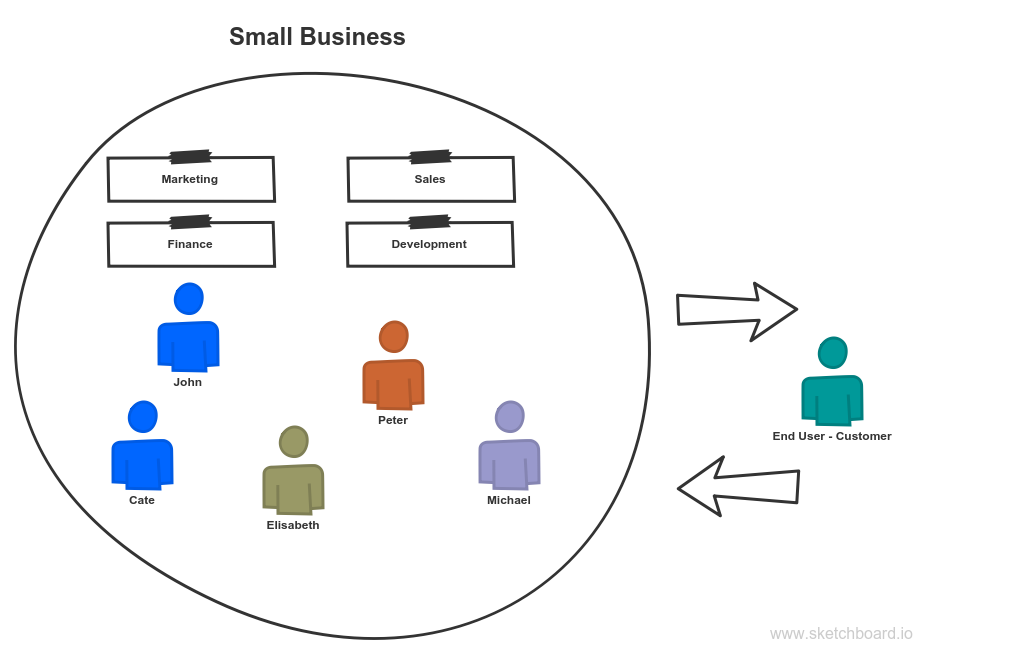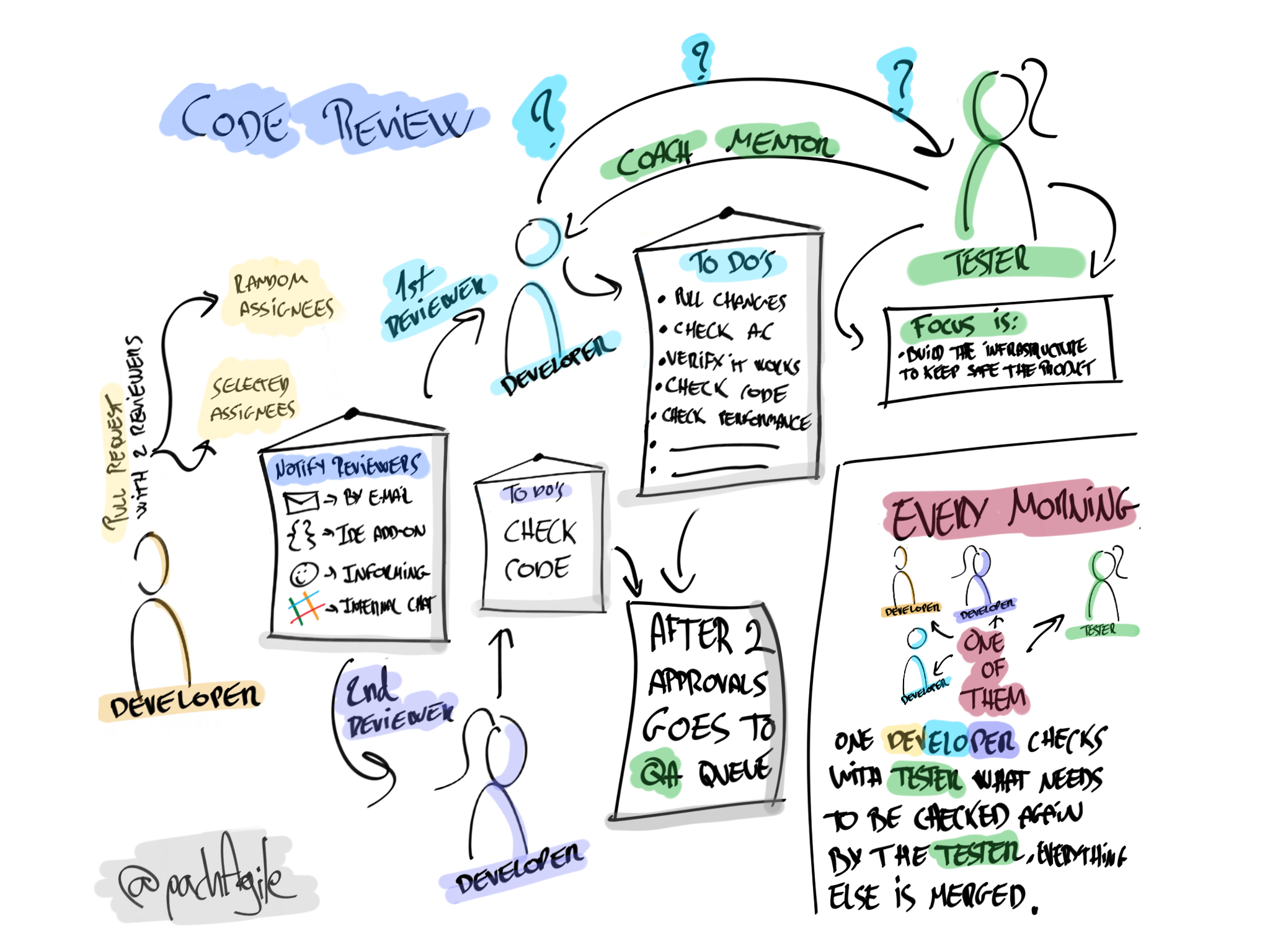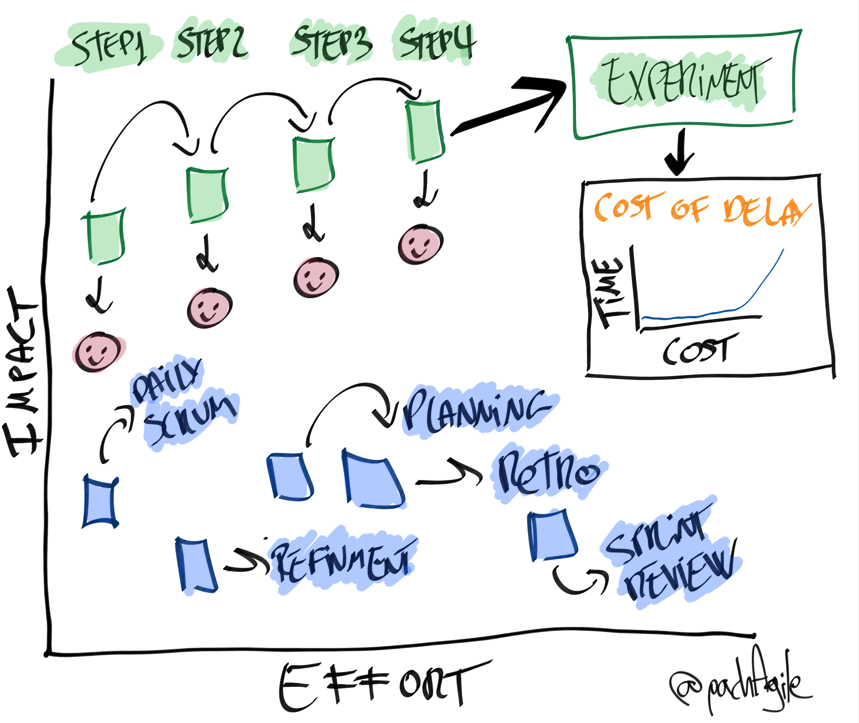Finally, I will write about this, thinking in my last year as Scrum Master I think I got enough experience to write about this, or at least to share my thoughts.
In my past experience, I worked always for big organizations, except when I moved to Barcelona and I tried to create my own company “Barcelona In My Pocket”.
Working for a big modern organization has good advantages, advantages like job stability, career path, professional and personal growth, and many others, but, which are the things you worry when you work in a big organization? when you go to sleep and you worry about something job related, which are those things?
I will start by comparing with when I was in Barcelona, when I was there I was basically the owner, and what this means is that I had to take care together with my partners about paying the light we consumed, the water, buying laptops, papers, pens, pencils, products to clean the office, onboarding people, and a big etcetera. I understand that this is the price you have to pay if you are running your own business, and the advantage of working for someone else is that you don’t care about all this stuff.
There is something very important that regardless if we are running our own company, or if we work for someone else we should take it equally seriously, and I refer to our customer, end user, or whoever is paying for your service or product, there is always someone at the end of the line that is using what we are building.
Independently of where we work(except the none profit organizations) this is always the common factor, if we are creating a product or providing a service, there is someone always at the end of the line paying for it.
Is a matter of perspective
Imagine the following scenario:
Here what we have is, small business of a group of colleagues, where we have different areas (marketing, sales, finance and development)
It’s important to say that all of them have shares, each of them own 20% of the company.
- John and Cate are developers
- Peter takes care of being the Product Owner
- Michael and Elisabeth are taking care of sales, finance and marketing
As you can see there is someone which is not part of our company who is the end user, our customer, who is paying us for what we are doing.
In Agile, we want to deliver value early right? working closely with our customer in order to get their feedback, so we can provide the best service or product, because we want customer collaboration over contract negotiation.
The scenario you see in the picture the whole company is close to the customer, we are small and we only can have 2 products running in parallel.
The development team in this case is working with Scrum, they are setting expectations every sprint with the whole company, in this case, the ownership would be real in papers, all of them have part of the company, so every sprint they not just set expectations with the customer, they are doing it with the whole company.
Every single person you see in the picture want to succeed, all of them want to move forward and want to grow because if they grow more, they will be able to hire more people, work on more product and at the end increase the business.
And how can they get there? starting with something basic: setting realistic expectations.
We all can be wrong setting expectations, one sprint we might do more, and the next we might do less, we all can be wrong, and we must learn from it, this is totally fine! software is complex! but what we try is to be realistic as possible, because we don’t want to disappoint anyone, and we don’t want to sacrifice things like innovation, quality of quality of life by having to work extra time, our aspiration should be work to live and enjoy life and not live to work.
We don’t get anything by promising things we will not be able to do, as early you start being honest, better is going to be for you, for your workmates and for your customers.
What happens with ownership in big organizations?
If you work for a big company the situation changes… first of all, you are not owner of the company, and even if you like it or not this is a big difference, having part of the business makes your feeling of ownership higher.
In this chart what you can see is a representation of a person who starts in January as a regular employee, and the same person getting shares in September, as you can see the ownership would increase a lot!
Why? There are many factors, but being the owner of the business for sure has an impact on our feeling of ownership and motivation.
The reality is that in big organizations this does not happen, we cannot just get shares because of no reason, but what we can do is create environments where our feeling of ownership increase even if we don’t have part of the business.
Make your customer transparent
What I mean with this is the following, sometimes if we work in a big organization is not easy to see who is our customer, of who is our end user, and if we work with internal products can be even harder, because the customer could be someone in marketing or someone in sales who represents part of the business.
I have been in this situation where you work as a developer, you have a product owner who deals with some sales teams, or marketing teams, who at the same team deals with other teams within the company, and everyone is trying to work in the same direction, but is hard to see the whole line with perspective, who is who and for whom I’m doing this?
Not having a close relationship with who is using the tool can lead to lack of ownership, for me, empowering this connection should be important for all team members, if 50 people are surrounding the same product, they should know each other, we should establish a mechanism or create the environment where we all can get to question what are we doing and why we are doing it.
For example, if you have problems trying to empower the sprint review with the end user it could mean that we are lacking somehow transparency, don’t get me wrong, the Product Owner should be enough, but if you are trying to involve the end user and you are struggling to get it, it could mean something.
If you work in a product I think is key to be aware of who is your end user, or end users, is key to create a relationship between the starting point (who executes the work), and the final point (who uses what you are working on a daily basis).
Think as if would be your own company
This is something I have done and it worked, I will use 2 situations to make it understandable.
First situation:
Imagine you are in a sprint planning, the team is creating the sprint backlog together with the PO and you as scrum master can see how the team is already feeling concerned about the amount of stuff is being added as a part of the sprint backlog, but still, the team is asked to add another task.
Development team reactions:
- The team accepts the extra task without questioning.
- The team rejects adding the new task claiming it would not be realistic to have it.
- “We will try, we are not sure, we have already enough things but we can try…”
The most common reaction I have seen is the third.
Saying “I will try” is already setting expectations, there is no such a thing as “I will try“, if you say you are going to try is the same if you would be saying “I will do it”, try means commitment.
What would happen if you as Scrum Master interfere and say, ok team, I can see you are not feeling too confident about it, so please imagine the following scenario:
Imagine that you guys are running your own company, you started 6 months ago, this is your second product and I’m your customer, I’m the one using the tool you are creating, I’m a cool customer so I’m not afraid of getting less than I could expect, the only thing I worry about is if you are setting realistic expectations or not, so, if you have to tell me what can I expect to have in next increment, would you be also adding this new task?
Team reaction is going to be no as an answer in 99% in all cases!
Second situation:
Again, you are in the sprint planning, there is one task where the goal is to connect the application you are creating to an API in order to get certain information, but, the Product Owner says, guys, I don’t know the final endpoint you will have to hit, but I will know later, still I would like to include the task in the sprint backlog.
Development tram reactions:
- The team accepts the task to be included without questioning.
- The team rejects adding the new task claiming it does not have all the information needed.
- “Well, we should know the endpoint, if we won’t know the endpoint we cannot start, but if you say you will add it later then it’s ok, let’s add the task”
The third reaction is also common, of course, this is a team decision, but again, why the team should be including the task if the task not even pas the DoR?
If you interfere and say, ok team, I can see you are not feeling too confident about it, so please imagine the following:
I’m again your cool customer, and you are telling me that I can expect to have the connection ready at the end of the sprint as a part of the increment, but the task is missing the endpoint, are you sure you want to add it? Remember that I’m a nice customer, but I want real expectations, if you are missing important information, are you sure about including the task?
If we want the task to be included, we need at least the critical information beforehand, we want to decrease risk and uncertainty, and we want to feel confident with the expectations we set.
Ownership
Feeling ownership of the product we are working on can be hard in big organizations where it’s hard to interact with our customer, but one day you could be running your own business right? And for me it’s very important to learn that even though we work with our colleagues there is always someone there paying for what we are doing.
We want to develop software that makes sense, software that provides value and that makes us and our end users happy.
We want to create a sustainable environment where we feel good, where we can grow and progress, but there is something very important always to take into account, the expectations. The kind of expectations you set will determine the relationship you will have with your customer, where the trust and confidence will grow or decrease, the positive part is that you get to decide what to do!







